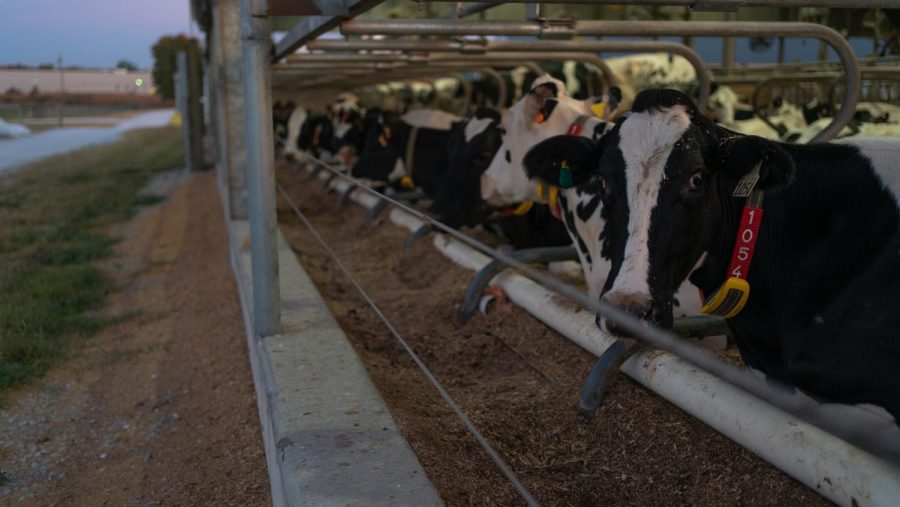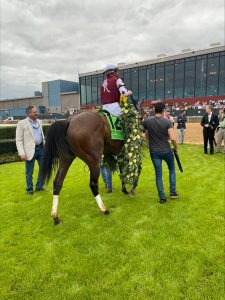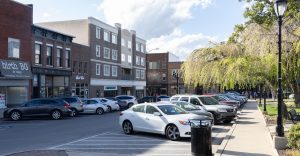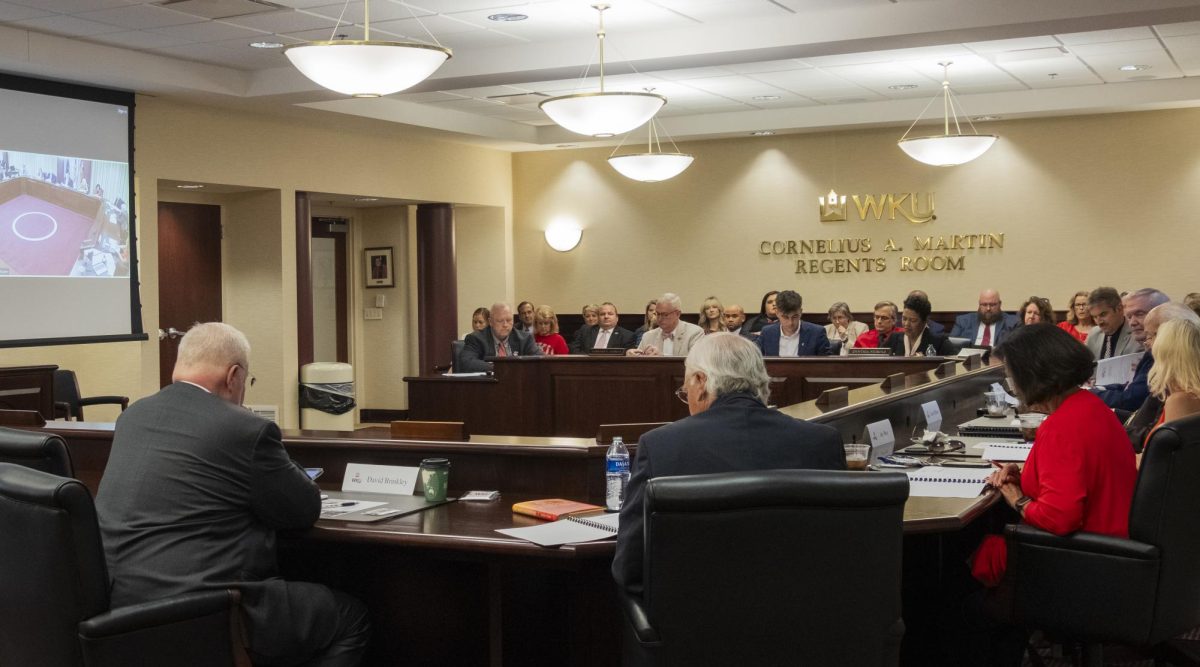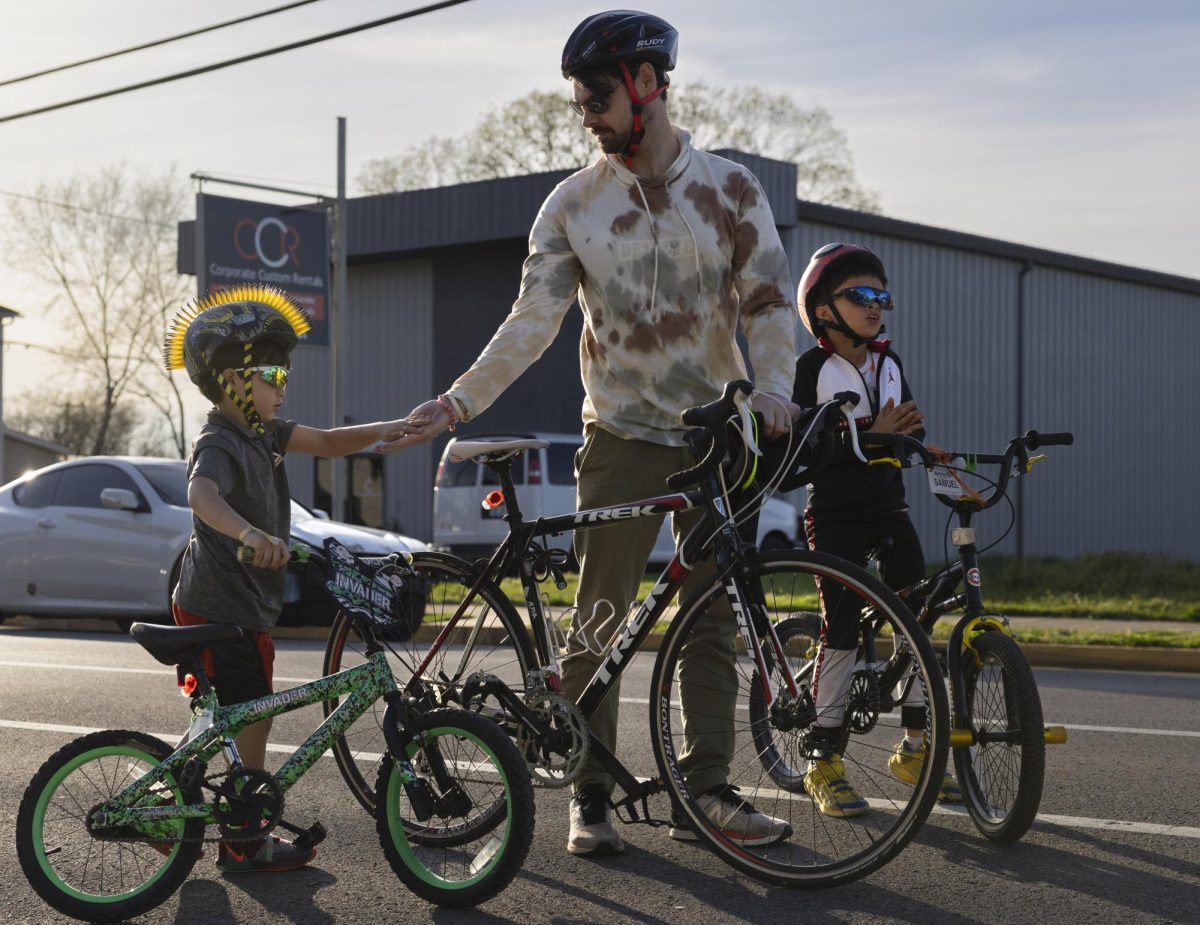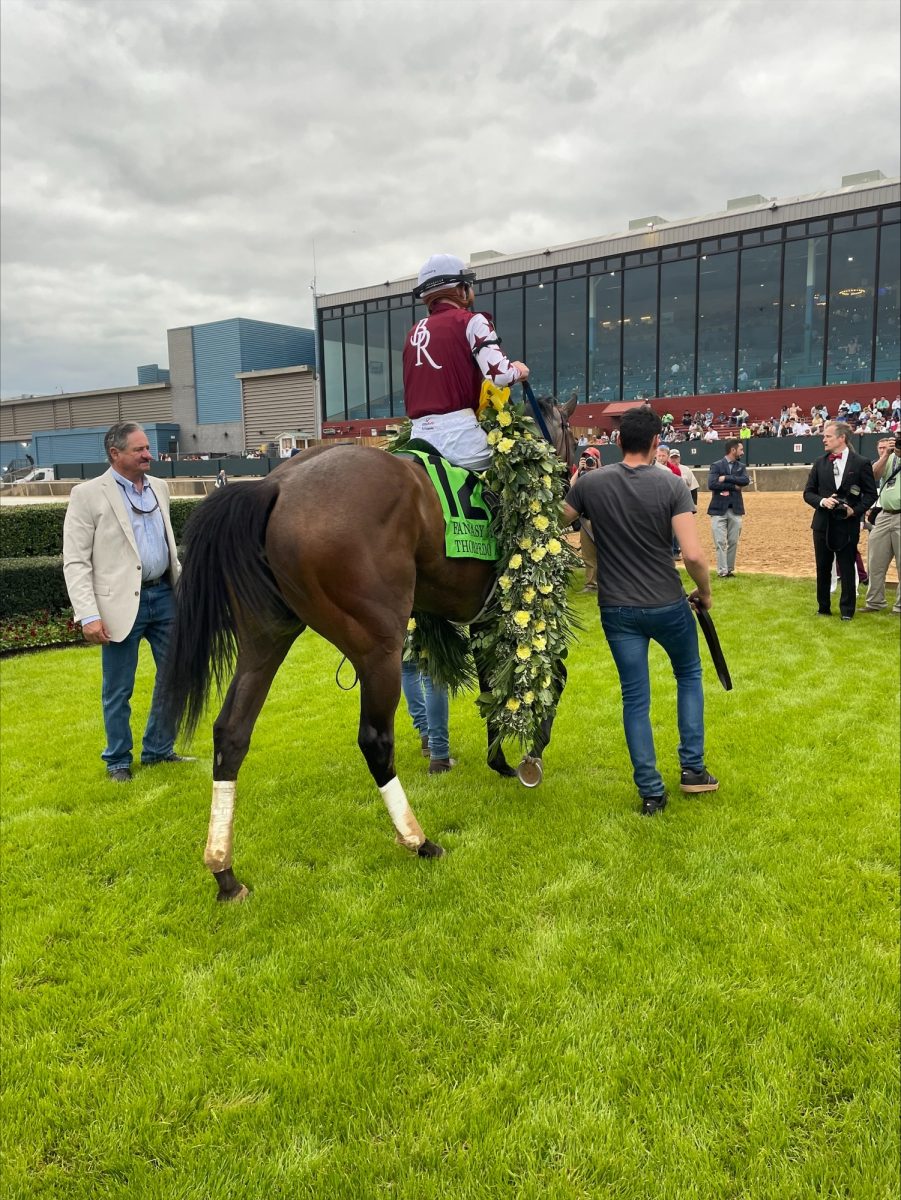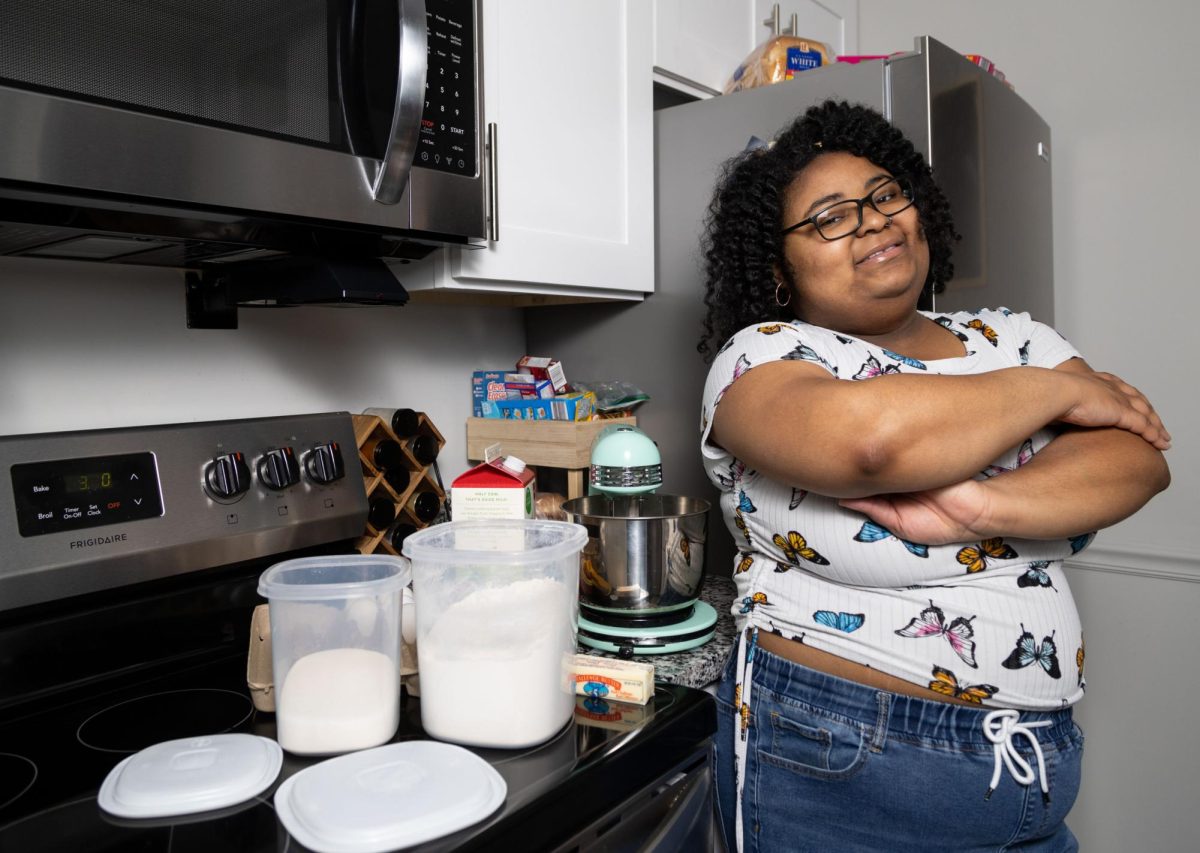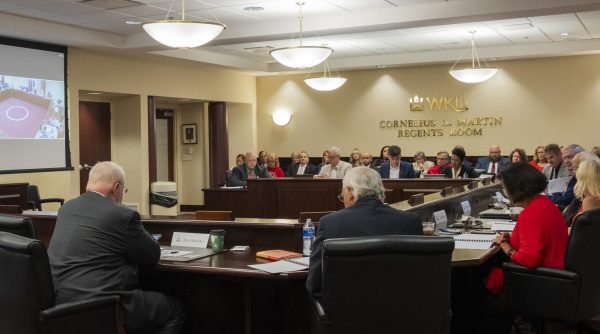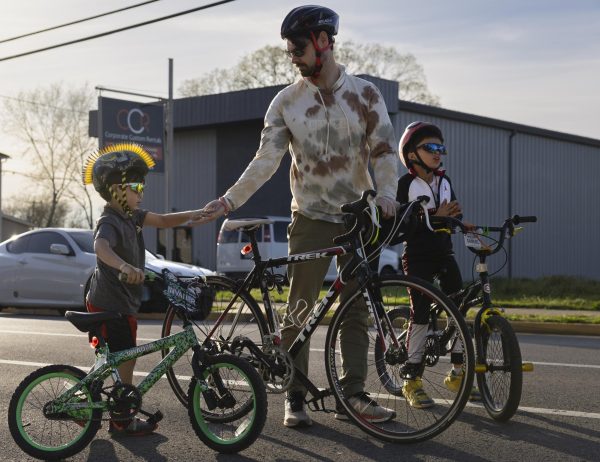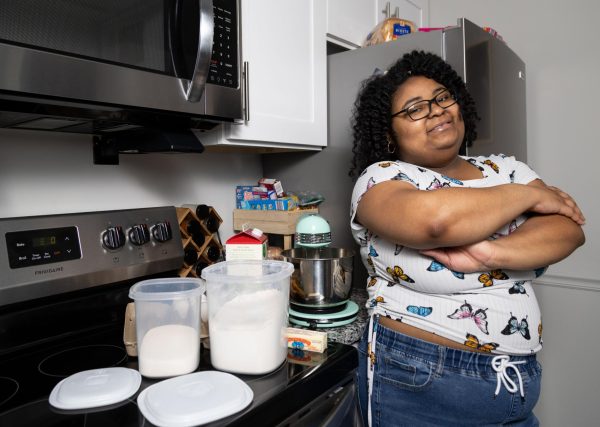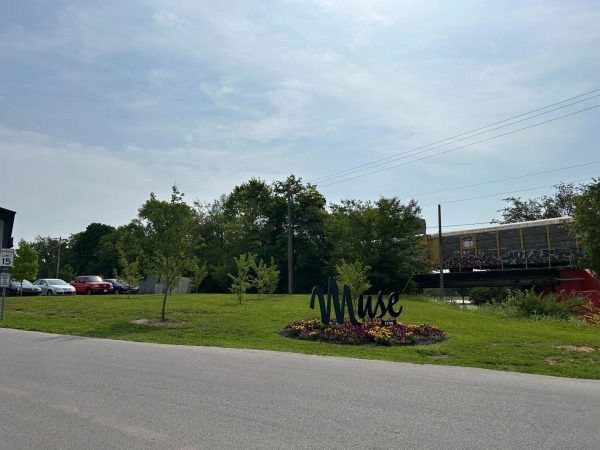‘Farm to Campus’ partnership brings food from WKU Farm to campus restaurants
In the morning the Holstein dairy heard relaxes in the dairy barn after their morning milking at the WKU Farm in Bowling Green, Ky. on Tuesday, Oct. 11, 2022. A portion of the milk from these cows is utilized in its raw form and after being crafted into cheese as part the new “Farm to Campus” partnership. The WKU Farm to Campus partnership between the Department of Agriculture and the WKU Restaurant Group provides locally sourced produce and beef from the WKU Farm that is being used in campus eateries, a partnership that has been ongoing now for around 6-months.
October 20, 2022
Have you ever wondered how the food you eat on campus got on your plate?
Members of the WKU community gathered at the WKU Farm to commemorate the beginning of the “Farm to Campus” partnership on Tuesday, Oct. 19, where students and faculty operate a program to bring produce, dairy products, and beef from WKU’s farm to campus restaurants and eateries.
The program will involve between 30 and 50 students in horticulture and agriculture sustainability who will tend to the crops each semester, allowing WKU to become the first college in the state to consistently deliver dairy, meat and produce as part of a Farm to Campus program, according to a press release from WKU.
Leslie North, director of sustainability for the WKU “Farm to Campus” project, said this was the brainchild of Roger Dennis, Madonna May, and herself, taking aim at fostering sustainability and creating applied learning opportunities at the WKU Farm.
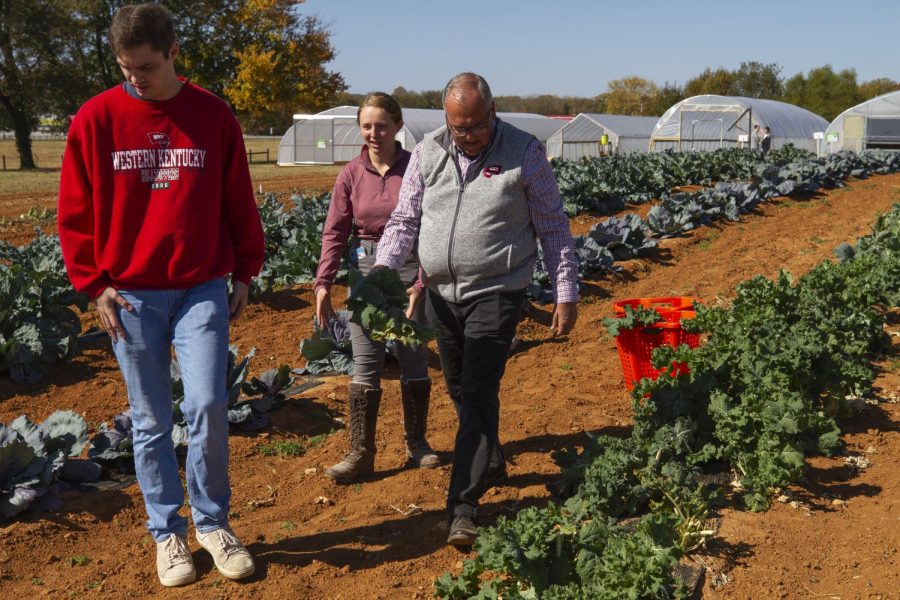
“Students are the ones in the field growing food, which comes back to campus [and] straight to the chef’s kitchen,” North said. “Any food waste, uneaten food and fruit peels from the restaurants—what we call pre-consumer waste—can then go back to the farm into composting, where it’s converted into soil, and then the process starts all over again.”
Although the idea seems straightforward, there were a lot of logistical obstacles that needed to be navigated, and the process was very complicated.
“There are a lot of pieces, even pieces that people don’t necessarily understand or see on the surface,” North said. “For example, the certifications to provide food on campus through dining services; they require special insurance to be able to do all of those things; and so it’s been a long time coming.”
Charles Judd, a 2022 graduate from WKU, was one of the first students to help Dennis start assembling the project nearly two years ago and said it has been amazing to see the pieces of the puzzle finally come together.
“I started [the project] last January and I’ve seen a complete overhaul of everything I touched initially,” Judd said. “Our greenhouses have increased—we now have five where we had two—it’s really exciting to see the little part that I did and now how far everyone has taken it.”
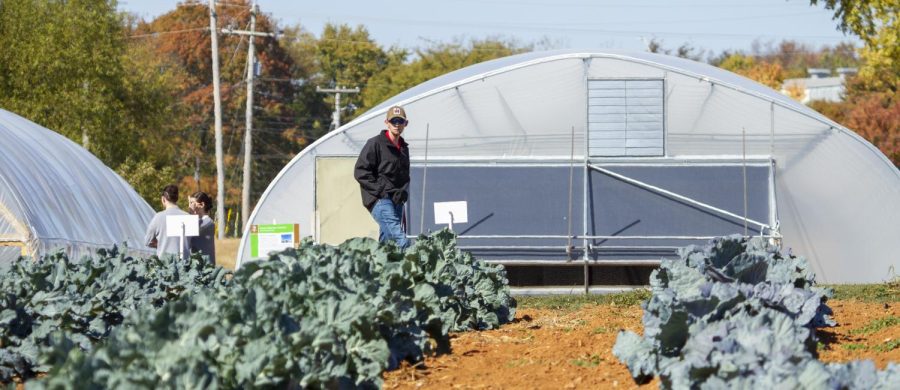
Gilbert Holt, also known as “Chef Gil,” is the district executive chef at Aramark—the company responsible for dining services on WKU’s campus in Bowling Green. Holy said the program is great and has already proven its viability.
“It’s exciting,” Holt said. “You can’t get any fresher than five miles away from where you’re producing the food, and from the time of harvest to the time of delivery—in about an hour and a half—you can have all the fresh vegetables you want.”
The number of vegetables the program supplies to WKU varies, but it is expected to go up, and the benefit of the program has already been substantial in the 5 to 6 months that dining has already been engaged with the program, according to Holt.
Roger Dennis, a horticulture professor at WKU, is one of the two faculty leaders responsible for the program, and has been responsible for putting the pieces together on the production side of the program.
“It’s been a long time coming,” Dennis said. “It’s nice to see it, it’s nice to have it done; it’s also nice to have a horticulture technician that’s going to be taking care of everything. I can step back and watch it grow.”
Dennis oversees the greenhouses and fields that contribute to the “Farm to Campus” partnership, and is particularly excited about being able to share with others what food production is actually like.
“I’m just glad that we can offer something like this for people to come out and see,” Dennis said. “There’s so many people who don’t understand what the process is for food to be produced and how much time and labor goes into it.”
Garry Lacefield, a two-time graduate of WKU and retired agriculture professor at the University of Kentucky, is proud of what the Agriculture Department has done with the “Farm to Campus” partnership, and what it does for the public’s understanding of farming.
“I’m very impressed and I’m very proud to see it,” Lacefield said. “If I weren’t connected to Western, I’d be proud, because we’re losing that connection between the food we eat and where it’s grown. We need to improve that level of communication.”
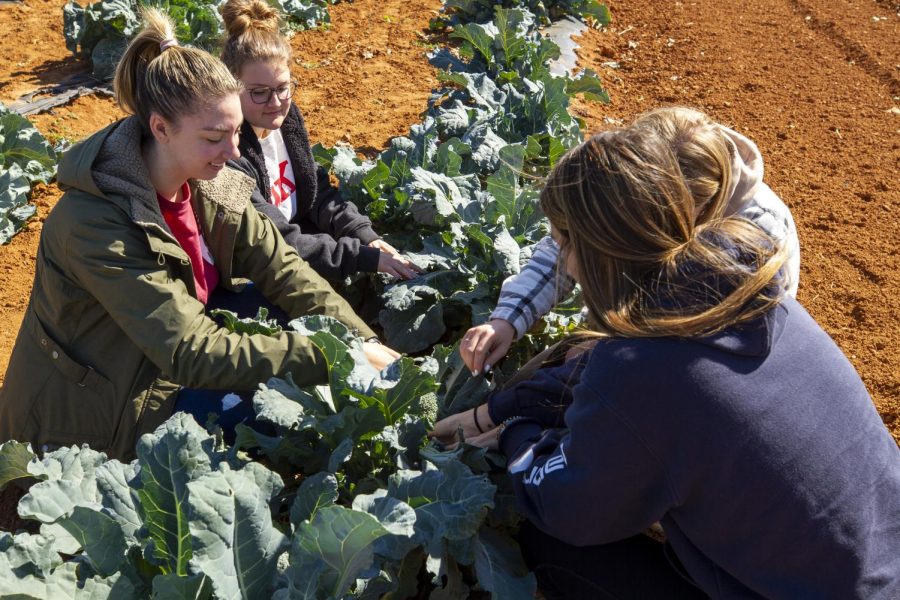
Lacefield has grandchildren who didn’t grow up on a farm—and short of him or his son’s who are involved in farming telling them where food comes from—they would miss the connection, a trend Lacefield has seen in many students today. Too many people today think that food comes from the grocery store, and programs like this challenge that perception, Lacefield said.
“We are so blessed in this country,” Lacefield said. “I’ve traveled to 57 countries, and I think we as Americans take for granted the blessing we have in having the most abundant, cheapest, and safest food supply of any country in the world. We should never take that for granted.”


